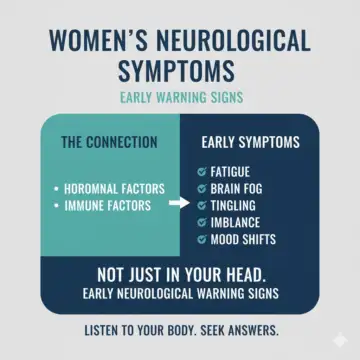According to World Health Organisation, migraine is more common in women, possibly ‘because of hormonal influences’. Even medication-overuse headaches, the most common secondary headache disorder, may affect up to 5 percent of some populations, women more than men.
Women at higher risk of neurological disorders
Dr Jay Jagannathan, neurosurgeon, Jagannathan Neurosurgery Institute, Michigan, US, took to Instagram on October 26, to highlight this in a post titled ‘Silent neurological conditions that affect women more than men’. He said, “Most people are surprised when I tell them this – but women face a higher risk of several neurological disorders that often go unnoticed for years.”
Conditions that often go unnoticed
Highlighting neurological conditions that disproportionately affect women, often going undiagnosed for years, Dr Jagannathan said, “Migraines. Multiple sclerosis. Autoimmune-related neuropathies. Silent strokes. Different names, same story: they start quietly, progress slowly, and are too often dismissed as ‘stress’ or ‘hormones’.”
According to Dr Jagannathan, women’s brains are influenced by hormonal and immune factors, making early symptoms harder to recognise. Symptoms like fatigue, brain fog, and mood shifts can be early warning signs, and he advises women to pay attention to subtle changes in their body and seek early consultation to change the course of the disease.
“The truth is, women’s brains are influenced by complex hormonal and immune factors that can make early symptoms harder to recognise – and easier to ignore. Fatigue, brain fog, tingling, imbalance, mood shifts – these aren’t ‘just in your head’. They can be early neurological warning signs,” Dr Jagannathan said.

Don’t ignore the warning signs
“As a neurosurgeon, I’ve seen too many women come in years later, saying: “I thought it was just burnout.” Here’s what I tell my patients: listen to subtle changes – your body always gives clues. Don’t minimise recurring headaches, numbness, or vision issues. Prioritise vascular and hormonal health – they’re deeply connected. Early consultation can change the entire course of a disease. Awareness is not fear. It’s protection. And the sooner we start the conversation, the more lives we save,” he concluded.
